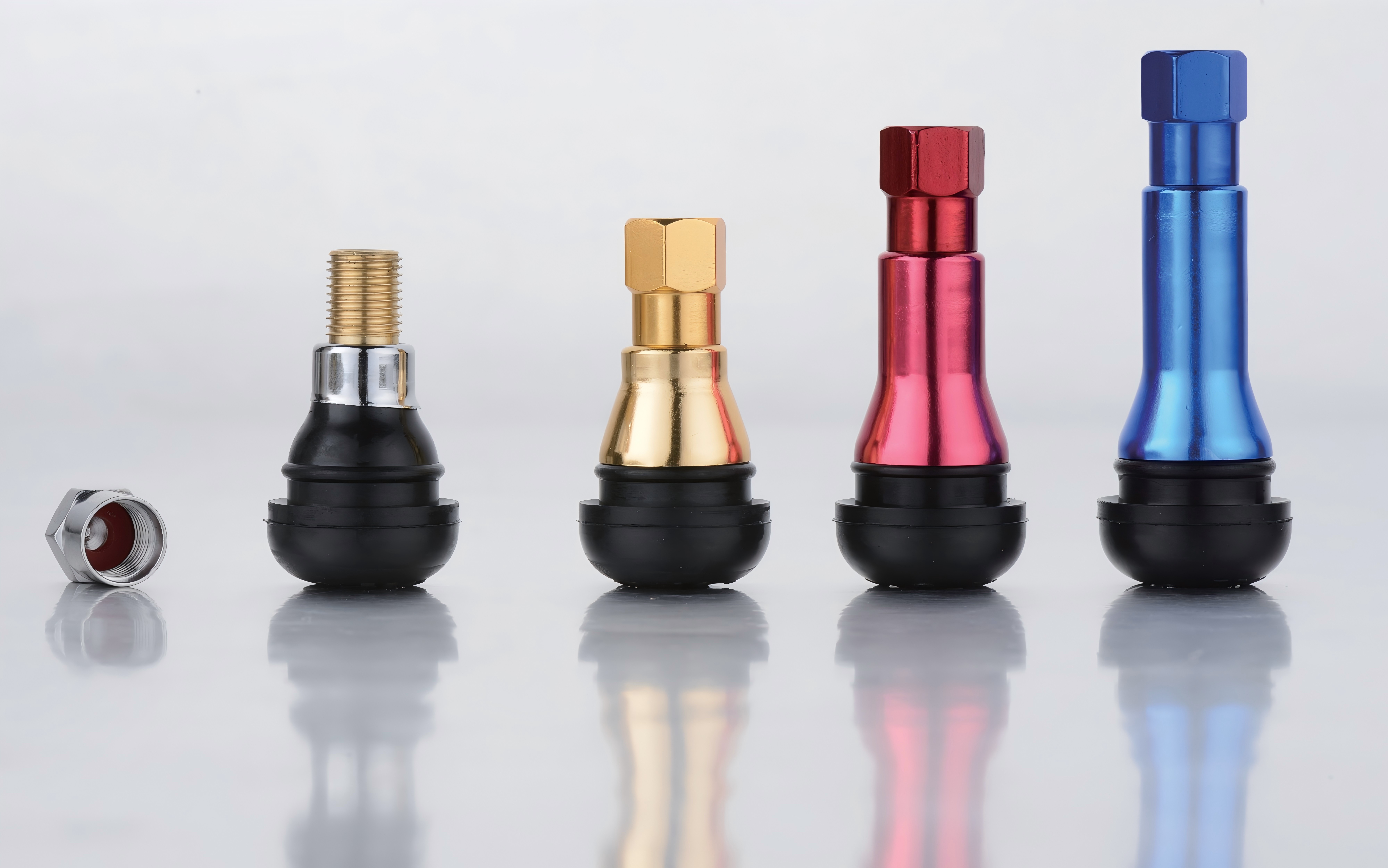Tire valves are essential components of any vehicle's tire system, playing a crucial role in maintaining proper tire pressure and ensuring safe driving conditions. Understanding the different types of tire valves, including rubber valves, metal valves, and their associated components like valve caps and valve cores, is vital for vehicle owners and enthusiasts alike. This article will explore what tire valves are, their types, and where they are used, with a particular focus on the importance of Tire Pressure Monitoring Systems (TPMS).

Understanding Tire Valves
A tire valve is a small device that allows air to enter and exit a tire. It is typically located on the rim of the wheel and is responsible for maintaining the tire's air pressure. Proper tire pressure is crucial for vehicle performance, fuel efficiency, and safety. When tire pressure is too low or too high, it can lead to uneven tire wear, reduced traction, and even blowouts.
PlayTypes of Tire Valves
1. Rubber Valves:
Rubber tire valves are the most common type found in passenger vehicles. They are lightweight, cost-effective, and easy to install. Rubber valves are typically used in standard tires and are designed to withstand the pressures and temperatures associated with regular driving. However, they can degrade over time due to exposure to UV rays, ozone, and other environmental factors, which can lead to leaks.
2. Metal Valves:
Metal tire valves, often made from brass or aluminum, are more durable than their rubber counterparts. They are commonly used in high-performance vehicles, trucks, and SUVs. Metal valves are less prone to damage from environmental factors and can provide a more secure seal. They are also less likely to deform under high pressure, making them a preferred choice for heavy-duty applications.
Main Components of Tire Valves
Valve Caps:
Valve caps are small covers that screw onto the valve stem. They serve several purposes: protecting the valve from dirt and debris, preventing air loss, and providing a seal against moisture. While they may seem insignificant, valve caps are essential for maintaining tire pressure and prolonging the life of the valve.
Valve Cores:
The valve core is the internal mechanism of the tire valve that controls the flow of air. It consists of a spring-loaded pin that opens when pressed, allowing air to enter or exit the tire. Valve cores can wear out over time, leading to slow leaks. Replacing a faulty valve core is a simple and cost-effective way to maintain tire pressure.
Where Do We Need to Use Tire Valves?
Tire valves are used in various applications, from passenger vehicles to commercial trucks and motorcycles. Here are some key areas where tire valves are essential:
1. Passenger Vehicles:
Every car, truck, and SUV on the road is equipped with tire valves. Maintaining proper tire pressure is crucial for safety, fuel efficiency, and overall vehicle performance. Regularly checking and replacing tire valves, especially rubber ones, can prevent issues related to air loss.

2. Commercial Vehicles:
Trucks and buses rely heavily on their tires for safe operation. Metal valves are often preferred in these applications due to their durability and ability to withstand the rigors of heavy loads. TPMS is also increasingly being used in commercial fleets to monitor tire pressure and improve safety.
3. Motorcycles:
Motorcycles require specialized tire valves that can handle the unique demands of two-wheeled vehicles. Both rubber and metal valves can be used, but it's essential to ensure they are compatible with the specific tire type. Proper tire pressure is critical for motorcycle stability and handling.
4. Racing and Performance Vehicles:
In the world of motorsports, tire performance is paramount. Metal valves are often used in racing applications due to their strength and reliability. Additionally, TPMS technology is crucial for monitoring tire pressure during races, where even a slight deviation can impact performance.
5. Bicycles:
Bicycles also utilize tire valves, typically Schrader or Presta valves. These valves are essential for maintaining the correct air pressure in bicycle tires, which affects ride quality and safety. Regular maintenance of bicycle tire valves is necessary to ensure optimal performance.
The Importance of Tire Pressure Monitoring Systems (TPMS)
TPMS has revolutionized the way we monitor tire pressure. By providing real-time data, TPMS helps drivers maintain optimal tire pressure, which is crucial for safety and efficiency. Here are some key benefits of TPMS:
1. Safety:
TPMS alerts drivers to low tire pressure, reducing the risk of blowouts and accidents. Properly inflated tires improve vehicle handling and braking performance.
2. Fuel Efficiency:
Under-inflated tires can lead to increased rolling resistance, resulting in higher fuel consumption. By maintaining proper tire pressure, drivers can improve fuel efficiency and reduce costs.
3.Tire Longevity:
Consistent monitoring of tire pressure helps prevent uneven wear and extends the life of the tires. This can lead to significant savings in replacement costs over time.
4. Environmental Impact:
Properly inflated tires contribute to lower emissions and reduced fuel consumption, making TPMS a valuable tool for environmentally conscious drivers.
Media Contact
Company Name: Ningbo Fortune Auto Parts Manufacture Co., Ltd.
Email: Send Email
Phone: 86-574-87277199
Country: China
Website: https://www.fortunewheelparts.com/





